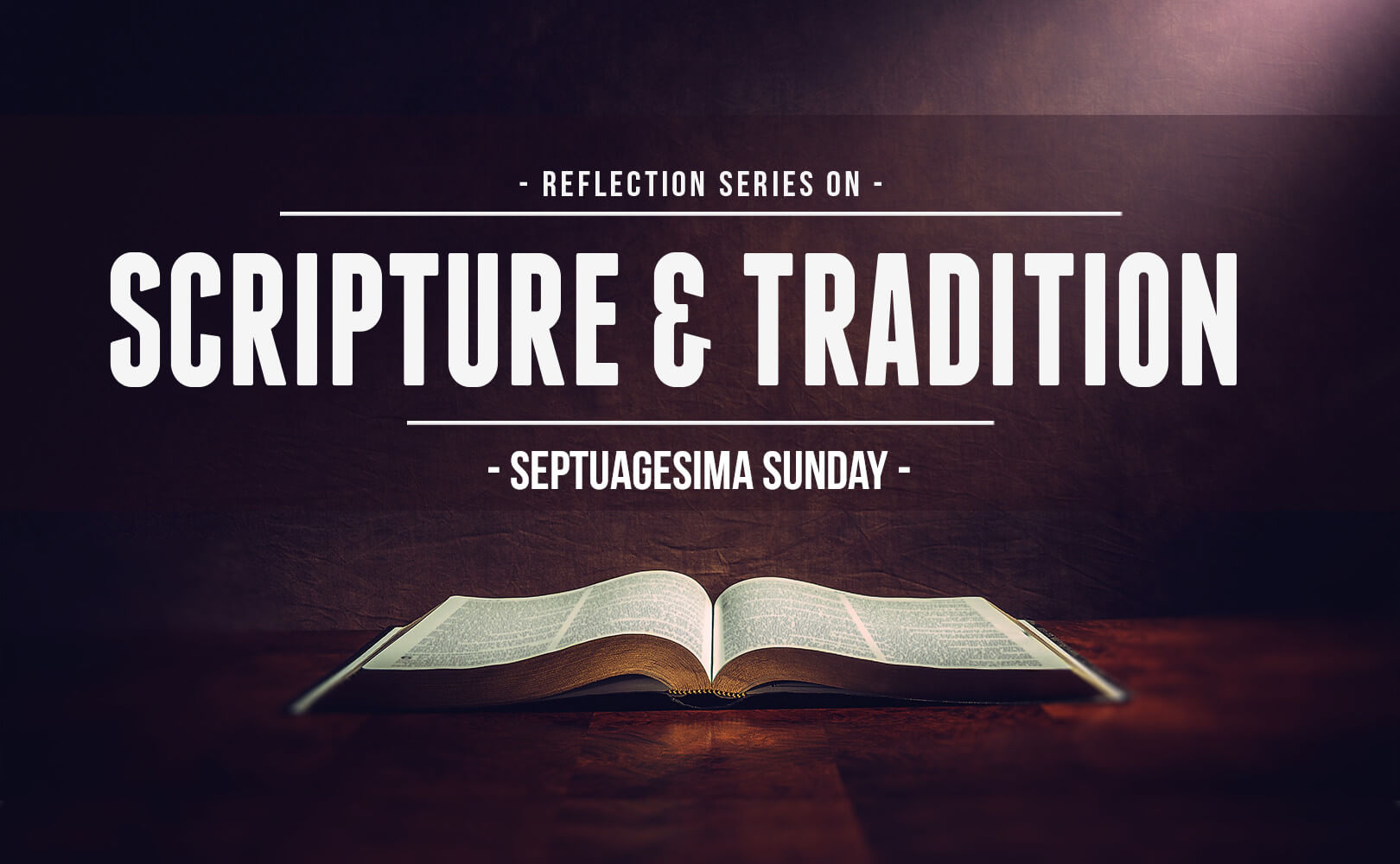Epistle: 1 Corinthians 9:24-27; 10. 1-5
Gospel: Matthew 20:1-16
Graciously hear, we beseech Thee, O Lord, the prayers of Thy people, that we who are justly afflicted for our sins, may be mercifully delivered by Thy goodness, for the glory of Thy name.
– From the Collect for the Septuagesima Sunday
Sunday is Septuagesima Sunday, which begins the Church’s preparations for the Feast of Feasts, Easter.
“Septuagesima” means “the seventieth,” referring to the (approximately) seventy days before Easter. Each of the three weeks before Lent have similar names: Septuagesima (seventieth), Sexagesima (sixtieth), and Quinquagesima (fiftieth). And the Latin term for Lent itself is “Quadragesima,” meaning “the fortieth.” While not intending to be mathematically precise, these days represent a countdown, in a sense, to the celebration of the events of Our Lord’s Passion, Death, and Resurrection.
Sadly, the Septuagesima season was removed from the post-Vatican II liturgical calendar; the reason given was a call to greater simplicity, which was supposed to reemphasize the importance of Lent. Yet the very purpose of the Septuagesima season is to emphasize the importance of Lent. Instead of Lent sneaking up on us, we have a chance to prepare our hearts, minds, and bodies for the penances we will undertake during Lent. Vestments are violet, the alleluias and Gloria are omitted from the liturgy, and the overall tone of the liturgy becomes more penitential—all these changes signal to us that the time for penance is at hand.
Note also that the Septuagesima presupposes that Lenten penances are hard. One does not need weeks to get ready to give up chocolate, or to stop putting cream in one’s coffee. Yet true penances such as fasting and other serious physical privations do need preparation, thus the need for the Septuagesima season.
Sunday’s Epistle emphasizes the importance of physical penances while also reminding us of the need to ask for God’s grace when offering them. St. Paul writes that “I chastise my body and bring it into subjection: lest perhaps, when I have preached to others, I myself should become a castaway” (1 Cor 9:27). The Apostle sees the spiritual life as fundamentally a struggle; we must fight against both demonic forces as well as our own bodies if we are to advance in the spiritual life. And this battle is continual and not over until we reach union with God in heaven. St. John Chrysostom notes, “This war admits of no truce, does it? It has no set time for the assault, does it?” (Homilies on Genesis 22.22). Thus, Septuagesima begins the annual reminder the Church gives us that we must continue this struggle, never surrendering to the passions that continually assail us.
Yet St. Paul also gives us the means by which we have strength for this battle, the “spiritual food” and “spiritual drink” he mentions in verses 10:3-4. We give up physical food during Lent, but we can only do this efficaciously by consuming the ultimate spiritual food and drink, the Eucharist. All physical food is subject to corruption, but the spiritual food of the Eucharist is incorruptible. “Christ is in that sacrament, because the body is Christ’s. So the food is not corporeal but spiritual” (St. Ambrose, The Mysteries 56).
Septuagesima Sunday is a call to begin again. No matter how badly we have practiced the life of a Christian disciple in the past, as long as we are alive we can start over. That is what Christ is telling us in the parable we find in Sunday’s Gospel: the laborers who begin near the end of the day receive the same reward as those who have worked all day. This should give us great hope that no matter how much we have fallen in the past, the penitential season that begins with Septuagesima Sunday and continues on through Lent can be a time of renewed discipleship of the Lord.


